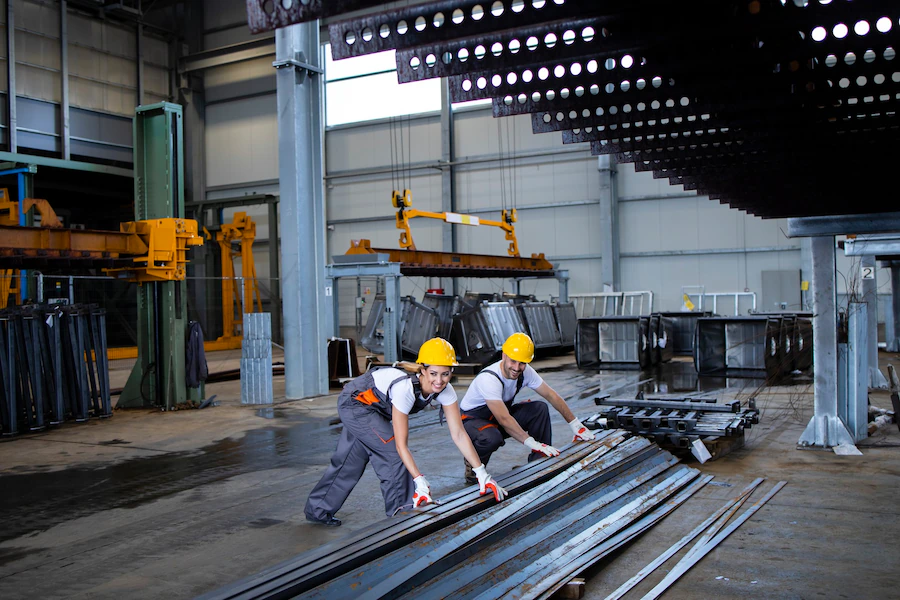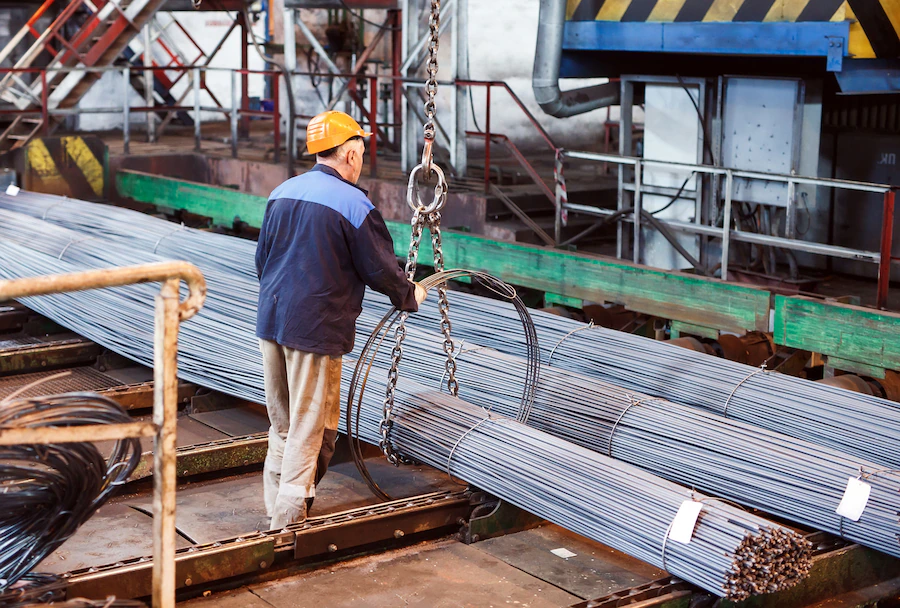How To Choose Between Aluminum And Steel For Your Commercial Projects?
by Abdul Aziz Mondal Business Development Published on: 11 September 2023 Last Updated on: 26 September 2024

Within the realm of industrial construction and manufacturing, selecting between aluminum and steel as primary building materials is a vital choice. Both metals possess unique advantages and attributes that can greatly influence the outcome of a project. In this article, we will examine the main contrasts between aluminum and steel, guiding you toward making an educated decision when choosing the ideal metal for your commercial ventures.
Aluminum – Lightweight And Corrosion-Resistant

Aluminum, known for its lightweight properties and remarkable resistance to corrosion, is an ideal choice for a range of commercial applications. Its low density makes it popular in the aerospace and transportation industries, where it reduces fuel consumption and boosts efficiency. The marine industry also benefits from aluminum’s rust resistance in boat hulls, ship superstructures, and offshore platforms. Architecturally, it’s utilized in curtain walls, window frames, and roofing systems or even an aluminum pipe, due to its lightweight nature and ease of installation. Aluminum’s corrosion resistance and malleability make it perfect for packaging and containers, especially in the food and beverage sector. Furthermore, its outstanding electrical conductivity is crucial for efficient power distribution in electrical transmission lines.
Steel – Strength And Durability
Steel, renowned for its exceptional strength and durability, boasts a wide array of commercial uses where robustness and structural integrity are crucial. It is extensively utilized in the construction industry for erecting skyscrapers, bridges, and large commercial buildings due to its extraordinary load-bearing capacity and resistance to bending and deformation. Additionally, heavy machinery, manufacturing equipment, and industrial infrastructure depend on steel’s resilience to function in high-stress environments. The automotive sector also relies on steel’s durability for vehicle longevity and crash safety across various components like chassis and engine parts. In the energy sector, components such as pipelines, power plants, and offshore drilling platforms incorporate steel for its strength and corrosion resistance. Lastly, defense and security applications employ steel as the primary material in armored vehicles, naval vessels, and military fortifications to withstand impact and safeguard personnel.
Key Differences Between Aluminum and Steel
Aluminum is significantly lighter than steel, offering reduced transportation costs and easier handling, making it crucial for applications where weight is critical. Despite this, steel is substantially stronger, with higher tensile strength, and is better suited for structural support and heavy loads. While aluminum has natural corrosion resistance due to its protective oxide layer, steel requires additional protective coatings, such as paint or galvanizing. Although aluminum can be more expensive than steel, its lighter weight may offset the cost in certain applications. Additionally, aluminum’s high malleability allows it to be easily formed into intricate shapes, while the customization of steel is still possible but more rigid. Both materials are recyclable, with aluminum having a slight advantage in energy efficiency during the recycling process.
Selecting The Right Metal For Your Commercial Project

The decision to use aluminum or steel for your project hinges on its specific requirements and priorities. Factors to consider include load-bearing needs, such as the demands of large structures, weight sensitivity for aerospace or transportation purposes, environmental conditions that necessitate corrosion resistance, budgetary constraints, aesthetic and design preferences, and the expected longevity of the project. Steel offers superior strength for heavy loads and greater durability, while aluminum provides a lightweight solution with natural corrosion resistance, flexibility in design, and potential cost savings in transportation and installation.
Selecting between aluminum and steel for commercial projects isn’t a universal solution. Each metal possesses distinct benefits and is more appropriate for certain situations. By meticulously evaluating your project’s needs, budget, and environmental factors, you can arrive at a well-informed decision that contributes to the success and durability of your commercial venture. From the lightweight adaptability of aluminum to the formidable resilience of steel, both metals have their place in the wide-ranging realm of commercial applications.
Read Also:







































































































